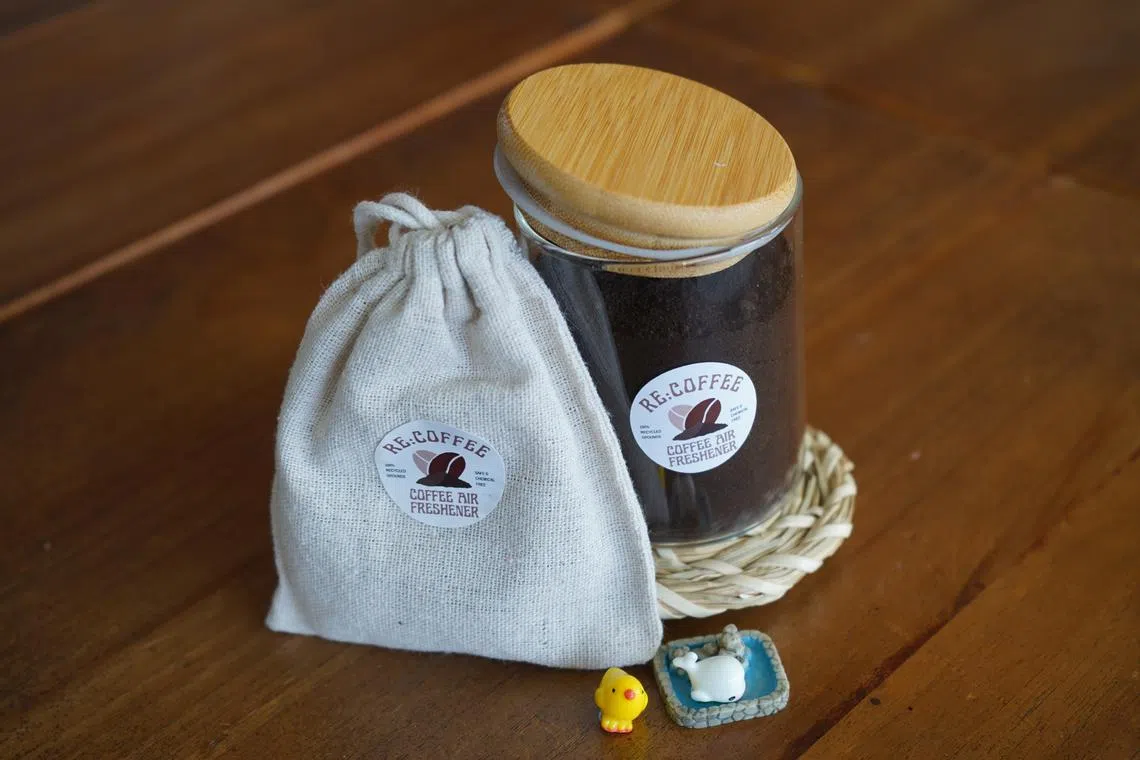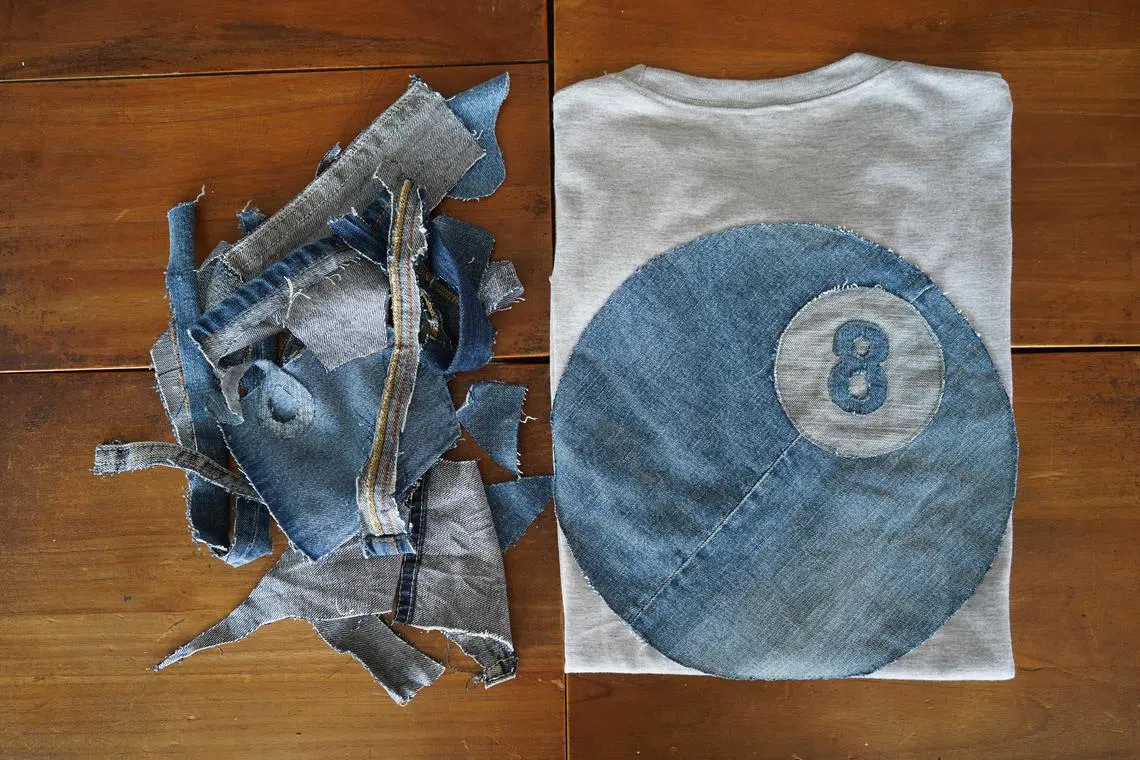Singapore Poly projects spotlight VR solutions for elderly, circular economy
Other student initiatives showcased focus on sustainability as well
CLIMBING a ladder to light up a virtual Gardens By the Bay setting is now possible for the elderly – without getting injured.
They can do this via an app called Steady Lah, which uses virtual reality (VR) to help seniors who are undergoing physical rehabilitation to get active again.
The VR-powered solution was developed by four students from the School of Electrical and Electronic Engineering at Singapore Polytechnic as part of their industry and innovation project, and was showcased at the tertiary institution’s open house on Thursday (Jan 9).
Jaedon Javier Lau, one of the team members, said: “For activities that target the upper limbs such as climbing the ladder, we can just virtualise the ladder and gamify it. They’re still doing the exact same movements.”
The goal of this project – which was done in partnership with welfare organisation Lions Befrienders – is to make the rehabilitation process more fun for seniors.
Lau said: “The (idea) came about when we realised that there’s an increase in the number of elderly in Singapore, and there’re not enough rehab centres to house and tend to each one.”
Navigate Asia in
a new global order
Get the insights delivered to your inbox.
The Ministry of Health said that by 2030, around one in four Singaporeans will be aged 65 or above, up from one in 10 in 2010.
Lau added that during Covid, many seniors could not go for their regular rehab sessions. But, with the app, they can exercise in their own homes.
“Even though they are doing the same repetitive move, they are in a game-based setting where there’s a score to motivate and encourage them to come back for more,” the student said.
The app comprises 16 VR games that test seniors’ mobility and memory, as well as motor and cognitive skills. It uses an artificial intelligence model to analyse users’ progress and suggest games that are more suitable for their needs. “This helps healthcare providers better understand what the user is doing wrong or (what they need to improve). This model helps to target or pinpoint the areas of need for the elderly,” Lau added. The team tested their solutions at an event run by the National Library Board in September 2024. The feedback was mostly positive, with about 63 per cent of users commenting that they preferred this version of rehab over their normal routine, said Lau. The team hopes to develop up to 52 games for the app, so that seniors can try a different game every week.
Driving sustainability
Other industry and innovation projects showcased at the open house focused on sustainability.
Dr Lim Joo Ghee, deputy senior director and engineering cluster director at the School of Electronic and Electrical Engineering, said that digital transformation and sustainability are at the “top of the agenda” for many companies.
He added that Singapore Poly focuses on hands-on experience so that students can develop “relevant” solutions for industry problems.
One such project upcycles plastic waste that is hard to separate and recycle, such as used contact lens blisters. It mixes different types of plastic together using compression moulding to form colourful eco-bricks that can be used in home interior design.
Kwek Yuh Tyng, one of the team members, said: “It can also be used as construction material for temporary shelters and structures, because it’s very lightweight and can be easily transported.”
Startups focused on the circular economy
At the same event, The School of Business’ Beta programme showcased many startups that were focused on the circular economy. These projects by the students received S$1,000 from the polytechnic in seed funding.
Lucas Tok, acting deputy senior director of the business and creatives cluster, said that this focus stems from wanting students to be ethical on top of being profit-driven.
For example, Re:Coffee recycles coffee grounds into chemical-free air fresheners. The team is looking at using tea leaves for the same purpose, so that they can attract customers who may not like the smell of coffee.

Another project, Restyled Retro, combats fast-fashion waste by reusing pre-loved denim. The discarded denim is sourced from thrift stores and cut and sewn onto plain T-shirts.
Christian Xie, part of the team, said: “The pre-loved denim would otherwise have ended up in landfills. We give a second life to the clothing because we want to be part of the solution, not the pollution.”

Tok added that Singapore Poly emphasises that startups must have a social impact as well. At the end of the students’ first year, the profits generated must be donated to a charity of their choice that aligns with the cause they are supporting.
Re:Coffee donated its proceeds to The Food Bank Singapore, and Restyled Retro donated to Zero Waste SG.
Decoding Asia newsletter: your guide to navigating Asia in a new global order. Sign up here to get Decoding Asia newsletter. Delivered to your inbox. Free.
Copyright SPH Media. All rights reserved.


